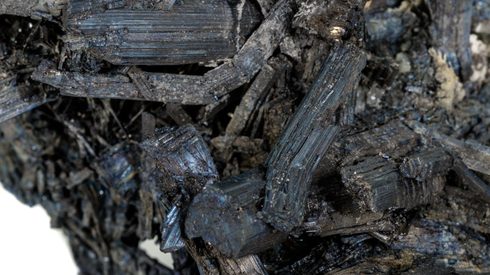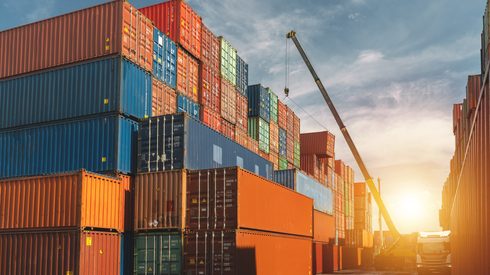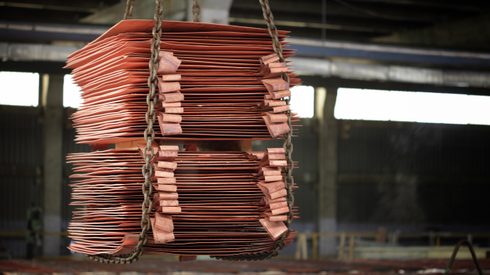Paragraph entered by Atlantic migration, in order for SteelFirst articles to display correctly on Metal Bulletin.
Reports emerged earlier this week that the bank, one of the biggest in China, had instructed its Shandong branches to place monthly quotas on the issuing of fresh letters of credit for iron ore imports.
The bank also told local branches not to open letters of credit if importers have yet to find a buyer for imported ore, in an attempt to limit stockpiling, according to sources.
Letters of credit are documents issued by a bank or financial institution which assure payment to a seller of goods, against which the seller receives payment from the bank.
The Bank of China did not respond to requests for comment at the time of publication.
Price slump
Iron ore prices showed a dramatic decline on Friday May 30, with Metal Bulletin’s 62% Fe iron ore index falling by $6 on the day to $91.33 per tonne, its lowest level in almost two years.
Iron ore prices have since rebounded but remain below the $100 per tonne level.
Market sources told Steel First on June 5 that the sharp drop in prices had been driven by the moves to tighten credit.
An investigation at the port of Qingdao, one of China’s main iron ore import hubs, into warehouse receipt fraud was also blamed for the drop in prices.
Although the focus of the investigation thus far is understood to have been stocks of copper and aluminium, sources in China told Steel First that a small iron ore trader may also have been affected.
Default risk
The restrictions placed on iron ore financing by the Bank of China come just over a month after China’s banking regulator urged local authorities and banks to investigate financing deals in a bid to minimise default risk.
Hong Kong banks started placing restrictions on front-to-back of letters of credit granted to iron ore traders in May.
Front-to-back letters of credit for iron ore imports involve the issuing of the letter of credit to the supplier before a corresponding letter of credit from a customer has been issued.
These latest credit-tightening moves follow a series of loan defaults in the Chinese steel sector earlier this year, which sent iron ore prices tumbling and rocked steel market sentiment.
Weak demand, oversupply
Weak steel demand from the construction and property sectors in China has left the physical industry struggling for buyers, and this has had a knock-on effect on iron ore demand and the raw material’s price.
Despite a slowdown in demand growth in China, the world’s largest consumer of iron ore, producers have been ramping up output, and will push an estimated 110 million tonnes of new iron ore supply into the market in 2014 alone.
Chinese imports of the raw material hit a record high of 86.83 million tonnes in January 2014, with April’s import volumes totalling 83.39 million tonnes.
The new tonnages of iron ore hitting the market come from a series of major new capacity ramp-ups by some of the world’s biggest miners.
As iron ore imports increase but demand growth for the steelmaking raw material slows, increasing volumes of iron ore are being stockpiled at ports.
While many primary import markets, such as copper, are well-hedged, the domestic Chinese iron ore derivatives contracts launched less than a year ago.
More than 100 million tonnes of ore is currently sitting at ports. With a proportion of this amount being unhedged, and with prices tumbling, the underlying value of financing deals is being eroded, sources told Steel First.
Crackdown
The extent of the crackdown on issuing of letters of credit remains to be seen.
“It remains unclear whether other top-tier banks will follow suit on instituting a letter-of-credit quota system in Shandong, as stock continues to pile up at the ports,” analysts at Standard Bank said in a note.
Chinese iron ore traders speaking to Steel First said that they expected prices to remain depressed while reforms of China’s steel market were under way.
“I don’t think any reversal of the market trend will be seen in June,” a trader said, “due to the government’s attitude on restraining steel capacity and banks’ regulations on steel and iron ore finances.”






